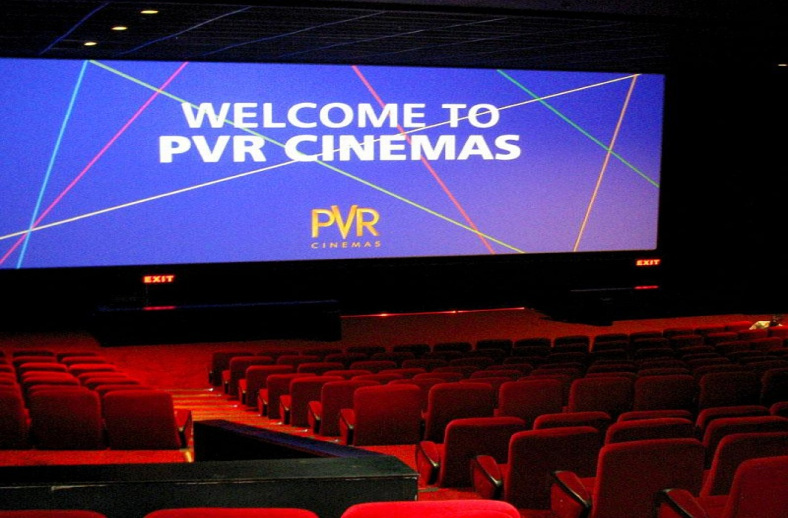By Rachit Raj
During one of my roughest phases of life, I was aided by a reassuring reality that I kept falling on to repeatedly. The comfort of a Friday and the promise of finding myself in the darkness of the theatre, watching a film that transports me to a world far away from the one I understand as my reality.
I am quite young at film criticism, and yet the Friday-centric routine has become a major part of how I look at myself, my life and my future plans. I long for a Friday, the moment when I enter the PVR lobby, filled with the smell of popcorn that tests you to the edge as you try to escape the capitalist trap of the overpriced food items on their menu; those initial advertisements, the Akshay Kumar ad that is a mere extension of Padman and a Virat Kohli-Anushka Sharma Manyavar ad that I can gaze at endlessly before Amitabh Bachchan pops up on the screen deleting apps from a hapless man’s phone to advertise the one app he is endorsing. Everything is a slow-burning build-up, before the lights dim and you find yourself face-to-face with the CBFC certificate staring down at you. A gentle reminder of power and politics that precedes any work of art.
The film, no matter how poorly executed, makes me glad about myself. If the film is good, I am glad to be witnessing the story on the big screen. If not, I am glad I am visiting this world for a couple of hours and not inhabiting it as my only, irreversible reality. I move on, as does the narrative, only to be halted at a mid-point. Interval. An idea that is known to few societies, India being one of them.
It is an obvious weight of an era gone by. There was a time when films were too long, and intervals were a necessary relaxation for the audience. But now it has taken a commercial turn. It is the time when the big bucks are spent on the light-weighted popcorn. Somehow people are hungrier when the narrative is nearing its peak. There is no other reason for an interval being forced on movies of other countries, often in the middle of a sentence (as it happened with me in a morning show of Jojo Rabbit).
Advertisements that could not be cramped up before the film began are now run shamelessly. In one instance, a bright-eyed Tapsee Pannu jumped on the screen in a Lyra ad seconds after she had just figured the presence of an unknown assaulter at her home in the terrifyingly wonderful bilingual thriller Game Over. I remember frowning at the ill-timed add, forcing me out of what was a fantastic performance by Pannu. But that is how the interval works. That is how Hindi cinema works. A limping Shah Rukh Khan in Kabhi Alvida Naa Kehna walks seamlessly in the song ‘Tumhi Dekho Na’, while Aamir Khan as a frustrated music director in Secret Superstar suddenly becomes the Khan of Satyamev Jayate and delivers a dialogue about the inevitability of talent rising above all. Hindi films are forced with such inconsistencies, some films manage them better than others and often that determines the overall impact the film has.
As the light dims once more, giving me my own cloak of invisibility again, the screen readjusts itself to the colour palette of the film. The narrative continues amidst the sound of chewing and a couple sitting two rows ahead, making out so loudly that for a minute I start reimagining Manto as a B-Grade erotic drama. Finally, they escape the theatre, realizing that the Nawazuddin Siddique-starrer is too quiet a movie for them.
A few minutes later the film finally ends, paving the way for an out-of-sync song that deserved to be limited to the promotions of the film, not the end credits. I wheel out of the theatre, ready to roll back in my regular life. A life I have just successfully evaded for a couple of hours. After all, isn’t that the whole point of life? Finding timely escapes to maintain a balance in your life. Some smoke up for that distance from reality, others go on trips. I simply book a ticket online and immerse myself in the dark carpet of myth and make-believe.
As the lockdown continues, those theatres that sell stories as motion pictures lie deserted, lost in their own darkness. The stories that take us away from our miseries have been taken away from us. Film theatres, bookstores, everything is on the other side of the dreaded lock. Meanwhile, all we have is our digitalized access to films and series. A good companion, but never an ideal escape from one’s immediate surroundings. For me, personally, days have lost their meaning. There is no Friday to look forward to. No tomorrow worth the wait. Every day, for us, has become a Sunday. And the endless emptiness of a Sunday had never felt so real and devastating.







Leave A Comment
You must be logged in to post a comment.